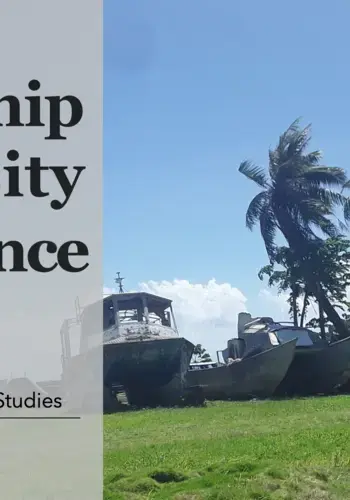The COVID-19 pandemic has impacted the world in ways unimaginable more than a year ago. Due to their ethnicity, gender, religion, age, or social status—or at the intersection of these identifiers—some people in the Pacific Islands and around the world are vulnerable to disproportionate impacts that compound health, psycho-social, and economic risks. However, while country-level statistical data about socio-economic effects is becoming more available, quantitative or qualitative data on how most vulnerable groups have experienced COVID-19 differently from others remain limited.
With support from the United States Agency for International Development, this project aims to create a safe space for diverse stories and showcase specific challenges faced by people from all walks of life. It brings forward the experiences of women, youth, rural dwellers, LGBTQI+ individuals, elderly people, people with disabilities, unemployed individuals, frontline workers, and COVID-19 patients to elevate their voices and increase public awareness and empathy for their struggles. Local researchers and activists in each country have identified cases, collected primary data, and shared authentic stories drawing on local traditional knowledge on how to pass wisdom from generation to generation using oral tales. The collected stories in this report are brought to life by Dialogue Fiji, Living All Inclusive in Belau (Palau), Niumata Esquires (Samoa), and Vanuatu Young Women for Change.
The stories in this report uncover unique ways in which the pandemic has led to job loss, reduced household income, and increased financial dependence on other family members. Furthermore, the crisis affected people’s health and psychosocial wellbeing; increased socio-economic stressors have put a strain on family relations, and created a propitious environment for domestic violence. The personal stories collected in this publication speak of intense emotions of anxiety, fear of falling ill, feelings of disempowerment and frustration, and suffering vicarious trauma. These were largely caused by a compounded effect of loss of social status, livelihood, dignity, and identity.
Yet these personal journeys also speak of drivers of resilience to adapt to the new reality. Many believe that the support of family members or friends has been essential to pushing through the most difficult instances. As successful coping strategies, participants across geographies and population groups found that working the land and returning to traditional produce gave them some control of their circumstances and allowed them to feed their families. The traditional communal lifestyle, maintaining connection with family and friends, cooperating with others, working in teams, and sharing resources such as food, phones, computers, and housing also helped alleviate the socio-economic burdens of the pandemic. Though many felt more should have been done, national governments and nonprofit organizations are credited for providing critical support, including financial aid and assistance in case of domestic abuse.
What is critical to keep in mind when discussing the experiences and needs of these groups is that, in the stories captured in this report, not a single person described themselves as “marginalized” or “vulnerable.” Rather, they saw themselves in terms of their relationships with others—their families, friends, and communities as a whole. Even when those relationships were fraught due to how others perceived their identity, the participants in this research took these incidents of marginalization as part of their experiences, but did not allow discrimination to define them.
This report can equip civil society organizations in the region with qualitative data and credible information regarding the needs of vulnerable populations as they monitor government responsiveness and advocate for inclusive response policies. The project also aims to provide decision makers with the information to better understand how structural factors and government policy have interacted with socio-cultural norms to shape these life experiences.
If you need more information about this project, please contact Ancuta Hansen, NDI Senior Director for the Pacific Islands, at [email protected].

